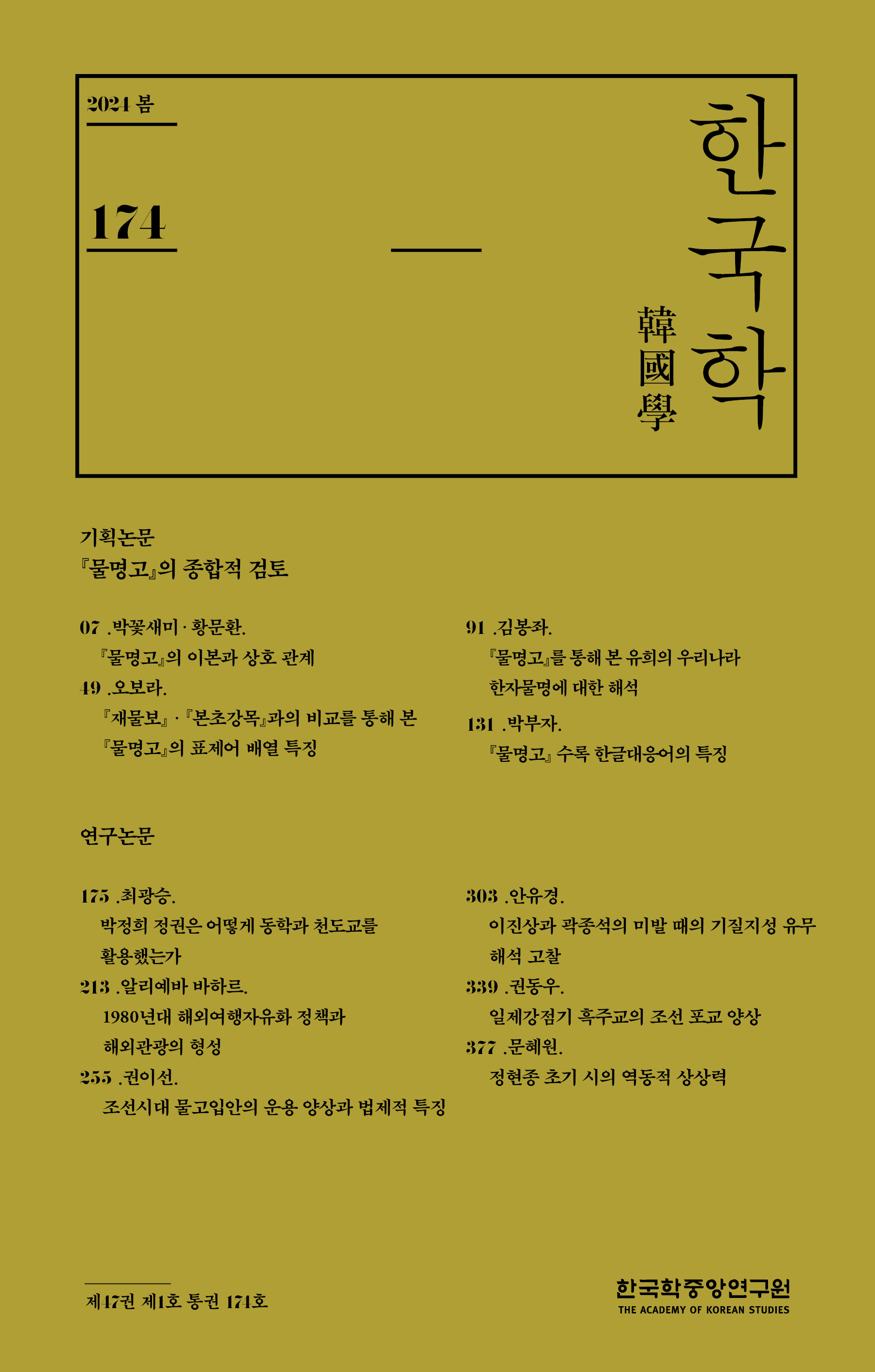
- P-ISSN 2671-8197
- E-ISSN 2733-936X
이 논문은 유가 사상의 맥락에서 일상과 인륜에 대한 사유방식을 분석하고, 인륜관계의 실천을 통해 자기에 대한 이해가 증진된다고 여기는 논리를 분석하였다. 유가 사상에서 자연의 변화와 지속을 설명하는 논리인 음양오행의 사고는 사물을 그 자체의 본성을 중심으로 이해하기 보다는, 사물이 갖는 유사성, 연결성에 기초하여 이해하는 상관적 사유방식에 기초한다. 이것은 인간의 감정, 관계, 덕성, 신체와 같은 영역의 문제들이 똑같은 상관성 안에서 동일한 패턴을 공유하고 있다고 이해한다. 인륜은 자연의 질서 속에 존재하는 구성요소의 중심에 ‘나’를 대입해 보았을 때, 내가 맺고 있는 연관성과 그 연관성으로부터 암시받는 도덕적 의무를 규정하는 것이다. 인륜에 대한 강조는 우주의 원리, 자연의 질서가 아주 구체적이고 내 삶에 가까운 것들에 실현되고 있다는 것이다. 유가 사상에서는 인간 삶의 모델로 여겨지는 자연적 질서를 굴신(屈伸)의 반복이라는 감응의 패턴에서 찾았다. 감응이란 특정한 맥락에서 사태의 실정을 이해하고(感) 그에 대하여 굴신의 적합함으로 반응(應)하는 것이다. 따라서 감응한다는 것은 정해진 법칙에 따르거나 복종하는 것이 아니라 상대방의 욕구와 상황, 맥락, 관계를 고려하여 반응하는 종합적인 판단양식이다. 소학에 제시되어 있는 효 실천의 방법은 반복되는 삶의 다양한 장면에서 부모의 상황에 주의를 기울이고 최적의 배려를 하는 것으로 이해할 수 있다. 자신의 존재론적 연관성을 인식하고 그 관계 안에서 최적의 상태로 감응하면서 살아가는 것은 근본적으로 동일한 자연의 이치를 구체적인 자신의 삶에서 실천하는 것이라 할 수 있다. 일상을 벗어나 고원한 이치에 매달리지 않고 동시에 일상의 비루함에 떨어지지 않는 긴장감을 중시한 유가의 일상에 대한 사고는 생활세계의 핵심적인 것들을 왜곡하고 살아가는 현대 우리에게 여전히 중요한 시사점을 주고 있다.
This paper analyzed the correlation of 'everyday life', 'human relationship (ren-lun)' and 'self-understanding' in Confucianism context. The thought of yin-yang wu-xing(陰陽五行) is based on the correlative thinking that understands things in connection with correlation the things have. The going and returning of moon and sun, the repetition of four season are the typical example of yin-yang wu-xing. And human's emotion, virtues, or physical organs are considered to share same pattern with natural order. Furthemore the rules of five human relation derive from the principle of universe. In other words, if we substitute haman relation for natural order, the rules of five human relationship are expression of the subject such as whom I came from, whom I live with and so on. The emphasis of human relationship is correspondent to natural order, in that it is a kind of applied form of natural order to life of oneself. Confucianist thought the principle of nature as correspondence(感應) like repetition of extention and contraction(屈伸). Correspondence consists of understanding the context and responding in the most appropriate way. In this point correspondence is not submission to rules but synthesized decision with considering context, relationship, or other's desire. The basic methods to practice filial piety were such correspondent activity as paying attention to parents' face, asking after comfort and so on. So we can say that practicing filial piety in correspondent way is to conform natural order and realize the universal order at personal level. I think the idea of everyday life in confucianism has tension not to fall into base daily life and not to transcend to aloof principle. And it gives a significant meaning to people who has distorted vision in modern society.
논어; 대학; 주역전의; 예기; 소학; 근사록집해; 맹자,
김혜숙, (2000) 음양적 사유와 인과적 사유, 철학적 분석
김형효, (2007) 마음혁명, 살림
동중서, (2006) 春秋繁露: 춘추 역사 해석학, 태학사
반고, (2005) 백호통의, 소명출판
신동은, (2004) 小學의 교육적 원리 연구, 교육철학
앤거스 그레이엄, (2001) 도의 논쟁자들, 새물결
정순우, (1997) 퇴계 사상에 있어서의 ‘일상’의 의미와 그 교육학적 해석, 한국정신문화연구원
정순우, (2007) 공부의 발견, 현암사
조한혜정, (2006) 생활과학, 일상생활, 그리고 일상성 : 식민지적 근대화와 ‘일상’을 지운 학문을 넘어서기, 대한가정학회지
최진덕, (1997) 일상적 세계와 인륜적 질서: 일성상의 유학적 의미, 정신문화연구
최진덕, (2004) 인문학, 철학, 그리고 유학, 청계
Li, Chengyang, (1999) The Tao Encounters the West, SUNY
Hall, David, (1987) Thinking through Confucius, SUNY
Arendt, Hannah, (2007) From Between Past and Future, Pearson
Ro, Youngchan, (2007) The absence of celibacy in confucianism and East Asian worldview, 고려대학교 민족문화연구원 국제학술대회